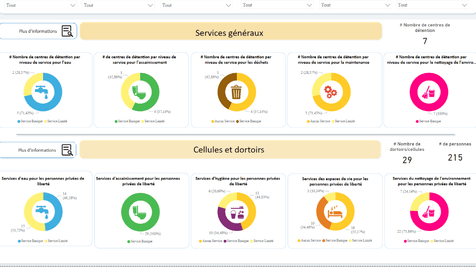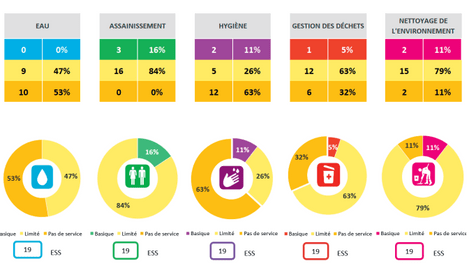
A digital tool for the evaluation of WASH conditions in public institutions
About
Description
In different regions of the world, Terre des hommes’ field operations have identified major challenges related to the implementation of Water, Hygiene and Sanitation (WASH) activities in public facilities, due to a lack of resources and adapted tools.
CartONG has therefore been supporting Terre des hommes since 2016 on FACET, a set of innovative and scalable tools that assess conditions of access to water, hygiene and sanitation services initially for schools and healthcare facilities. The success of the tools has led to a collaboration from December 2021 to July 2022, to develop FACET WinD, a kit this time for detention centers. This project is part of Tdh’s “Access to Justice” program, focused on improving the living conditions of children and young people in detention, with the ultimate aim of reducing violence and recidivism, in line with the foundation’s Vision 2030. Tdh therefore developed the questionnaires and indicators based on the health guidelines, while CartONG was responsible for developing the associated digital tools.

All FACET tools are based on internationally recognized indicators and are suitable for all humanitarian and development interventions. The collection questionnaires – based on the open source Open Data Kit and deployed within Tdh on KoboToolbox – are simple and adaptable, enabling data to be collected on offline mobile applications. They are complemented by specific analysis tools enabling standardized, ready-to-use visualization of the data collected via dedicated pre-configured tools (FACET Analyser or PowerBi multilingual dashboard). See an example of the tools available for schools and health centers here. The collaboration took place in five key stages, from the initiation of the project to the finalization of the tools after a pilot project in Ecuador.




